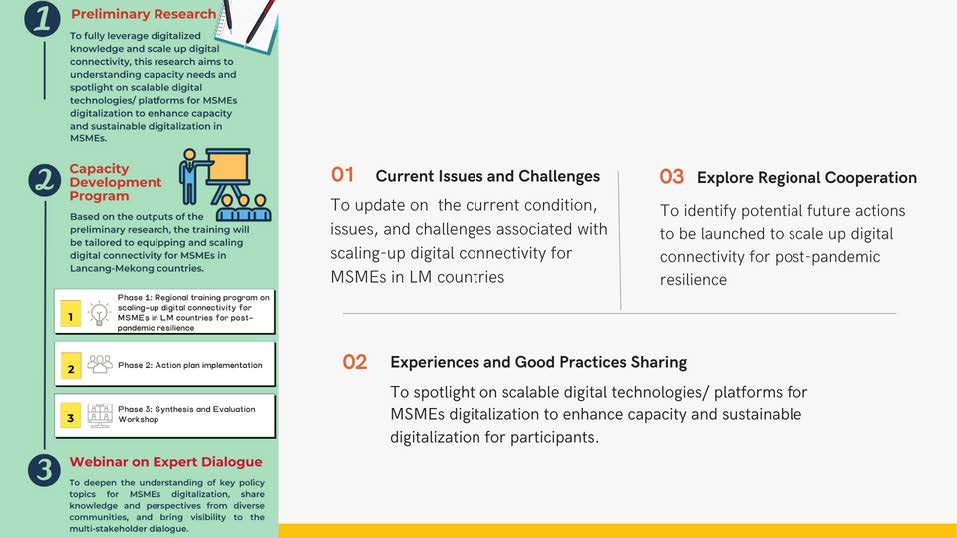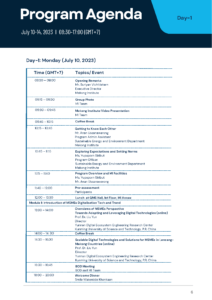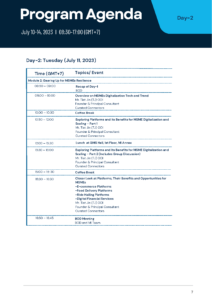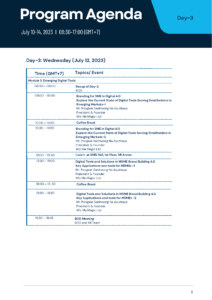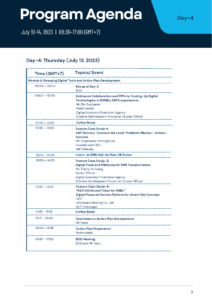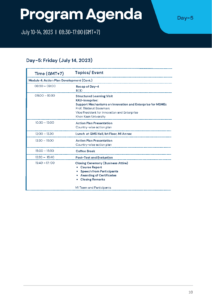
Over the years, rapid adoption of digital technologies has brought transformation to Micro, Small, and Medium-sized Enterprises (MSMEs) sectors, with digital tools bringing services solutions such as fintech and e-payment to consumers’ fingertips. While the COVID-19 pandemic has pushed the business system to its breaking point, many private companies, MSMEs, and governments increasingly use digital services as a force multiplier in delivering products and services. With the pandemic, digital technologies are no longer seen as a luxury but as a critical element for people, organizations, and states to remain relevant, competitive, and efficient. However, the process of adopting new digital approaches continues to take longer. Even though digital technologies have become critical for MSMEs, many small businesses still need to learn about leveraging and integrating technology into their business. The degree of technology adoption also varies significantly from one firm to another, which has important implications for how quickly firms are able to react to shocks and move some of their operations online.
Digitalization is becoming a larger component of GDP in Lancang-Mekong (LM) economies. The region needs to raise the quality in scaling-up digitalization and adopting innovative technologies in MSMEs. Continued support of MSMEs’ digitalization requires policymakers to adopt a two-pronged set of interventions that allow MSMEs to reap the benefits of the digital world while overcoming the challenges of digitalization. Importantly, digital connectivity is invaluable driver to enable MSMEs to seize new opportunities, shape new economies, and accelerate progress toward achieving the 17 Sustainable Development Goals as scheduled. It lights up the hope of leapfrog development for MSMEs in LM countries.
Prioritizing digital connectivity and digital economy in MSMEs sector as a key element of post-pandemic resilience in LM countries, regional cooperation plays important in supporting MSMEs to participate in digital transformation. The existing Lancang-Mekong Cooperation (LMC) focus on digital connectivity is one of the priority areas to provide opportunities for the region to cope with the current COVID-19 crisis and overcome long-term development challenges. As well as Global Development Initiative, which focuses on digital economy, and digital inclusion is foundational to inclusive economic growth. Boosting regional cooperation on digital transformation, adopting digital technologies to leverage existing ties and create new ones, and focused investment into regional interoperable digital infrastructure will help accelerate COVID-19 recovery and sustainable economic resilience.
Recognizing this background, Mekong Institute (MI), funded by the People’s Government of the People’s Republic of China, is implementing a regional training program on “Scaling-Up Digital Connectivity for Micro, Small, and Medium-sized Enterprises in the Lancang-Mekong Countries for Post-Pandemic Resilience”. The program will be implemented through three phases of a modular cycle;
- REGIONAL TRAINING PROGRAM ON:
Scaling-up digital connectivity for MSMEs in LM countries for post-pandemic resilience (July 10-14, 2023) - ACTION PLAN IMPLEMENTATION:
Action plan implementation (July-September 2023) - ONLINE SYNTHESIS AND EVALUATION WORKSHOP: Online synthesis and evaluation workshop (October 2023)
Digital technologies have played a key role in addressing the effects of the pandemic and opening up opportunities for MSMEs in LM countries to build back better for post-pandemic resilience. To fully leverage digitalized knowledge and scale up digital connectivity, the training program is designed to enable the participants to have a comprehensive understanding of the content, focus on sharing of practical knowledge by the participants and resource persons, encourage an exchange of information and ideas through group discussions, adopt participative methods, and foster networking among the participants.
During this training, we will:
To facilitate in scaling-up digital connectivity for MSMEs in LM countries for post-pandemic resilience, the regional training will bring together about 24 government officials, development practitioners, representatives of MSMEs, digital service providers, financial services providers, development organizations, non-governmental organizations, and experts in the areas of digital economy and MSMEs development from Cambodia, P. R. China, Lao PDR, Myanmar, Thailand and Vietnam.
Participants Criterias
- Government officials who focus on promoting MSMEs with technology and innovation
- Experts working on the areas of digital and MSMEs development
- Representatives of MSMEs associations
- Ability to communicate in English Language
- Ability to commit full attendance and training requirements
- Commit to cooperation with MI for training monitoring and evaluation process
About Modules:
- Module 1: introduces key concepts and discusses digital technology as an enabler for MSMEs in LM countries. Understanding emerging technologies is a prerequisite since technologies are rapidly evolving, MSMEs must comprehend the trends to be effective.
- Module 2: provides a comprehensive overview of the digital technologies transforming how MSMEs operate. To help MSMEs take a quantum leap towards digitalization, this module will explore the present state of tech adoption across MSMEs and how they can leverage technology to drive business resilience.
- Module 3: explain key application and/or platforms that will explore the current state of play for digital tools serving MSMEs sectors and smallholders in emerging markets and evaluate how the delivery of these services are working or failing.
- Module 4: expose participants to develop action plans which aim to disseminate the knowledge acquired from the training in their home countries.


